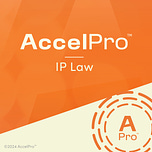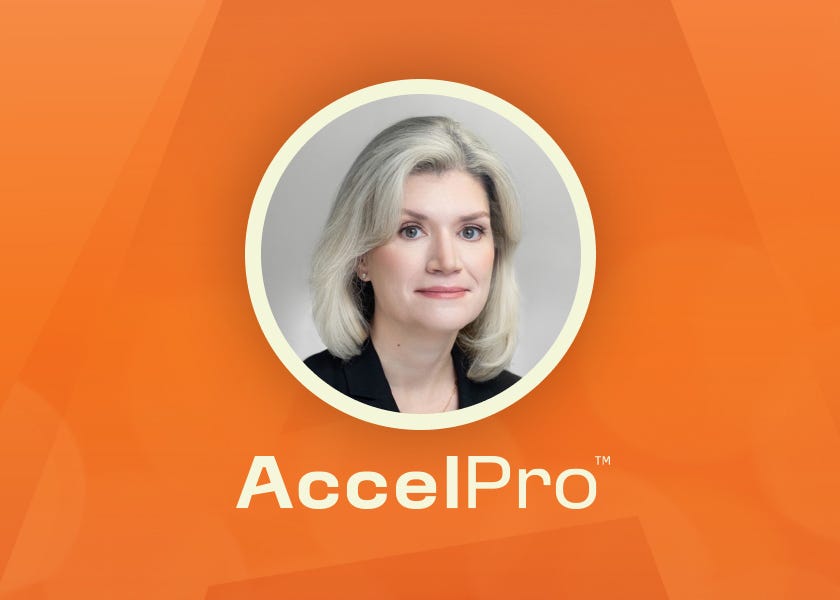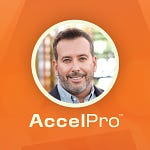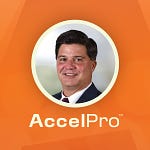Listen on Apple Podcasts, Spotify and YouTube.
Welcome to AccelPro IP Law, where we provide expert interviews and coaching to accelerate your professional development. Today we’re featuring a conversation with Dr. Kristi Sawert of Fish and Richardson.
Sawert has 15 years of experience at the U.S. Patent and Trademark Office, including eight as an administrative patent judge, and is a Principal at Fish & Richardson in Washington.
We talk about Sawert’s experience as an administrative patent judge (APJ), the Patent Trial Appeal Board (PTAB), working with APJs, and more.
“I used to give talks about board practice,” Sawert says.
“I would always say, “If you want to win at the PTAB, help me help you.” As an APJ, it didn't really matter to me whether the petitioner won or the patent owner won. What was really important was that I had a rock solid decision for appeal. As you know, almost all PTAB decisions are appealed.”
Listen on Apple Podcasts, Spotify and YouTube.
Interview References:
Kristi Sawert’s Fish & Richardson profile.
7:34 | Inter Partes Review. United States Patent and Trademark Office (USPTO).
8:00 | Post Grant Review. United States Patent and Trademark Office (USPTO).
TRANSCRIPT
PRESENTING ARGUMENTS BEFORE PTAB
Neal Ungerleider, Host: As an administrative law judge at PTAB, you've likely encountered counsel using similar strategies which helped them win in district court for invalidity disputes in PTAB proceedings.
However, what works in district court or on appeal to the federal circuit, might not always work while appearing before PTAB. What would you advise counsel to consider changing when presenting arguments?
Kristi Sawert: I recently heard a colleague say that the Board is laser focused on the merits of a case, not so much the district court. I really agree with that.
If you're at the Board, you really have to be laser focused on the facts of your case and how the law applies to your facts. Anything you might say in district court to add “flavor,” as in, we're the good guys and the other side's the bad guy, is really not persuasive to the PTAB. You really just have to be laser focused on your case and the merits of your case.
NU: What are some ways practitioners can frame arguments to be more effective during post grant proceedings?
KS: When I was an APJ, I used to give talks about board practice.
I would always say, “If you want to win at the PTAB, help me help you.”
As an APJ, it didn't really matter to me whether the petitioner won or the patent owner won.
What was really important was that I had a rock solid decision for appeal. As you know, almost all PTAB decisions are appealed.
I really wanted that decision to be affirmed at the Federal Circuit. I always say that if you're a party before the PTAB, make it easy for the APJs to find in your favor.
What does that mean? That means writing clearly and concisely, leaving out all the embellishments and anything unnecessary. Make it easy for the APJs to use your main brief as a roadmap. The easier you make it for them, the more likely you are to win your case.
NU: For our listeners who are new practitioners going to PTAB for the first time, what are some of the most challenging parts of PTAB trials for new practitioners? Do you have any tips for them?
KS: The PTAB is, I think, 12 years old now, so the practice really is still new and it changes–especially as there are new policy changes or new administrations. New rules come out. As a new practitioner, I would really advise that you need to keep up with what's going on at the PTAB. That means reading the decisions as they come out, keeping up on any changes and practices, keeping up with rulemaking and so on.
If you can do that, then I feel like you would be very successful at the PTAB.
NU: Do you have any recommendations on ways practitioners can better present technical arguments to gain credibility before the PTAB?
KS: I think you need to know your audience.
The APJs are not examiners, but they're not jurors either.
Unlike examiners, APJs aren't necessarily immersed day to day in some very particular, very discrete subsection of a technology. As an APJ, I saw a lot of different technologies.
There may be times when, as a practitioner, you need to explain the technology a little more than others–especially when you're dealing with some very cutting edge technology. You might want to think about having a tutorial or something like that.
Again, you want more than you would give to a juror. Many APJs do have advanced degrees and are engineers or scientists, but sometimes you may need a little bit more technical information.
Using Expert Declarations
NU: What are your suggestions on how best to use expert declarations?
KS: In my view, an expert declaration should explain what's in your briefing and then explain a little more. What I mean by that is that an expert declaration that merely repeats what the attorney has said in the paper is just not persuasive. It's not persuasive because it doesn't tell you anything more than the paper told you.
So when I was an APJ looking at expert decks, I was looking for that expert to explain a little bit more to me than what I could find in the briefing. I was looking for expert decks that really explain the facts and the technology so I could fully understand the case.
When an expert takes that extra time, finds other references that support her findings or what she's saying about the technology, I found that expert to be more credible than an expert who did not do that.
NU: Since we have listeners who come from all over the IP law community, can you tell them a little bit about how someone becomes an APJ?
KS: The USPTO issues job announcements on usajobs.gov and every so often there are positions opening for APJ. You can go to that site, it will tell you how to apply, and it's a pretty rigorous interview process.
I found that the people I worked with at the Board were very smart, amazing lawyers, and I really enjoyed my time there.
NU: Another thing I was curious about for PTAB, what criteria do they use to decide whether to institute a review?
KS: For an inter partes review or an IPR, that's a case filed more than nine months after a patent issues.
The APJs are looking for what's called the Reasonable Likelihood Standard.
That is a lower standard than preponderance of the evidence. I thought of it as about a 30% chance you would win at trial and meet the reasonable likelihood standard.
For a post-grant review or PGR, that's a case challenging a patent that has been issued within the nine months. The standard is higher for institutions. That's a preponderance of the evidence.
NU: What advice do you have for practitioners for oral arguments before the PTAB?
KS: My main advice is just to be ready to answer a lot of questions.
Every oral argument I was involved in as an APJ–we always really like to ask questions and really understand the record.
As an attorney appearing before the board, you really need to know the record backward and forward.
The APJs in particular are looking for evidence that supports your arguments in the record. You should really know where that evidence is.
If you say something is a statement of fact, the natural question an APJ is going to ask you is where is that fact in the record? That's really what they want to know.
So it can really disrupt the flow of the argument if you're shuffling through papers to find citations you need or asking your colleague at the table to find citations for you. So really know the record backward and forward. That's so important.
NU: Do you have any recommendations for memorizing the record, preparing for the arguments, and making sure that you're able to represent your client as well as possible before your appearance?
KS: I really recommend having moots practice a few times in front of your colleagues or people who are cold readers to the case. They can ask you questions, you're able to articulate the answers and you know what the important issues are going to be.
I also recommend that you have in front of you either an electronic copy or a paper copy of the record and either electronic notes or paper notes where you can get to what you think are the most important points in the record and so you can flip to them very easily.
When I was in the Solicitor's Office, one of the things that the attorneys in the Solicitor's Office do is defend the board decisions at the Federal Circuit.
When I went to the Federal Circuit, I would always have my paper appendix with me with lots of little notes where different findings or different facts were in the record so I could easily flip to them.
NU: For post-grant proceedings at the board, what should practitioners expect?
KS: Again, a practitioner should expect that you're going to have APJs who understand the technology. So if it's a technology that's more readily understandable, you probably don't have to describe the technology as much and APJs will be able to understand it.
If you have a more cutting edge technology or a more complicated technology, you may have to give a little bit more background on the technology.
Other than that, I think it's very similar to having a Federal Circuit argument or having a case that is at the ITC, you're expected to go very quickly. You can expect that your APJs understand what's going on and you really need to get to the meat of your argument. You really need to get to the merits of your arguments and write clearly and concisely so that the APJs can find in your favor.
NU: For new practitioners who haven't appeared before PTAB before, what kind of questions should they be asking their colleagues who have experience appearing before the board?
KS: I think that there are a lot of issues that are very particular to the PTAB that you need to know before you practice in front of the PTAB. One big issue is the board's discretion. The board may institute a petition and start a trial, but the board never has to do that.
A lot of times the board will deny a petition and refuse to institute a trial based on its discretion. One area that's unique to PTAB practice that practitioners need to stay very on top of is the latest decisions from the PTAB in the area of discretion. That's something that people who practice in front of the PTAB very often are dealing with everyday. If you're new to the PTAB and don't know about discretion yet, that's something you would need to learn.
From Government To Private Sector
NU: Can you tell listeners about your transition from government service to the private sector? Do you have any advice for listeners who may be making a similar move?
KS: I was in government for most of my career. I'm very grateful for the opportunities I had at the Patent Office and as a clerk at the Federal Circuit. Clerking at the Federal Circuit, I think almost every clerk will tell you it's a highlight of their career. I was at the PTO for 15 years.
I reached a point in my life where I decided I wanted to make another push and go out to the private sector. I wanted to use the experience that I've gained through the years to benefit clients and win cases.
For people thinking of moving, whichever way you're thinking, whether it's government to private or private to government, I think one of the most important things to remember is that patent law is a smallish community.
So either someone knows you or knows someone who knows you. Given that, when dealing with others in patent law and in your cases best practices to keep it civil and respectful. You never know, someday that person may be an APJ or in the solicitor's office and is on the hiring committee. Maybe that person is at a law firm, you're an APJ and thinking of going back out into private practice and maybe they're going to interview you. You just never know what's going to happen in the future and patent law is small. So treat everyone with respect.
NU: What was your path to patent law like? What led you to this career pathway?
KS: I think it's an interesting story. I don't know if other people do, but I was in graduate school. I was studying biochemistry and I really loved science, but I found out that I did not like sitting at the bench and doing the same experiment over and over again and mostly failing at it.
I really love to learn about science and I think a lot of patent lawyers are that way.
When I was in graduate school, I was really thinking of what I can do other than be a postdoc or sit at the bench. And I looked at a lot of different careers in business, careers in genetic counseling and teaching.
I happened to do an informational interview with a person who worked at the Ohio State Technology Transfer Office. We had the same story about how we love science, but we weren't really into sitting at the bench.
I learned from his career path. I had an interview at NIH, and so I was flying to the DC area, and the person at the Technology Transfer Office said to me “I have a cousin who's a patent attorney. Maybe he can give you an informational interview while you're in the DC area.”
I said, “That would be great!” I won't keep going, but to make a long story short, that's basically how I got into patent law.
I ended up working at the law firm. I was hired as a technology advisor at the law firm that their cousin worked at. I just really liked it. I really loved working with smart people, learning about new technologies, but not necessarily sitting at the bench. It was a perfect world for me.
NU: Since informational interviews obviously have done a lot of benefit for your career, what recommendations do you have for listeners who are doing informational interviews?
KS: People love to talk about themselves, as I am now, so never be shy to send an email or call somebody and say “I'm a student,” or “I'm thinking of a career change. Would you spend 20 minutes with me so I can ask you some questions about your career path? I would really appreciate it?”
When I was doing that as a graduate student, everyone I asked said yes.
NU: Can you give the AccelPro community an example of a time when a peer, not a supervisor or a mentor helped you with a difficult challenge during your career?
KS: As I mentioned before, I was in the Solicitor's Office and at the Patent Office for seven years before I moved over to the PTAB. That was a challenge for me because in the Solicitor's Office there is not a production requirement, but at the PTAB, there is a production requirement.
By production, I mean, you need to write so many decisions and mail them in order to meet a certain yearly quota.
Moving from Solicitor's Office to PTAB was a challenge for me because I wasn't used to the production system that APJs have.
What I did was I spoke with my coworkers a lot about how to ease into production, and they helped me with how to ramp up.
They encouraged me, because everyone can struggle with production sometimes. I think it's important to know that when you're starting a new job, the things that you're struggling with in the beginning, other people struggled with. Even though that was maybe 20 years ago that they struggled, they still remember and they can still help you through it.
For me personally, that was something that was really helpful in my transition.
Listen on Apple Podcasts, Spotify and YouTube.
This AccelPro audio transcript has been edited and organized for clarity. This interview was recorded on June 17, 2024.
AccelPro’s expert interviews and coaching accelerate your professional development. Our mission is to improve your day-to-day job performance and make your career goals achievable.
Please send your comments and career questions to questions@joinaccelpro.com. You can also call us at 614-642-2235.
If your colleagues in any sector of the IP law field might be interested, please let them know about AccelPro. As our community grows, it grows more useful for its members.











